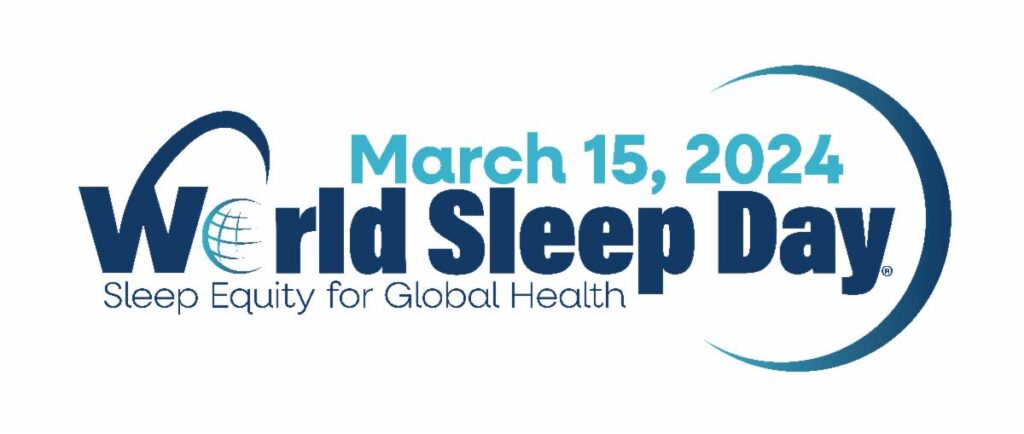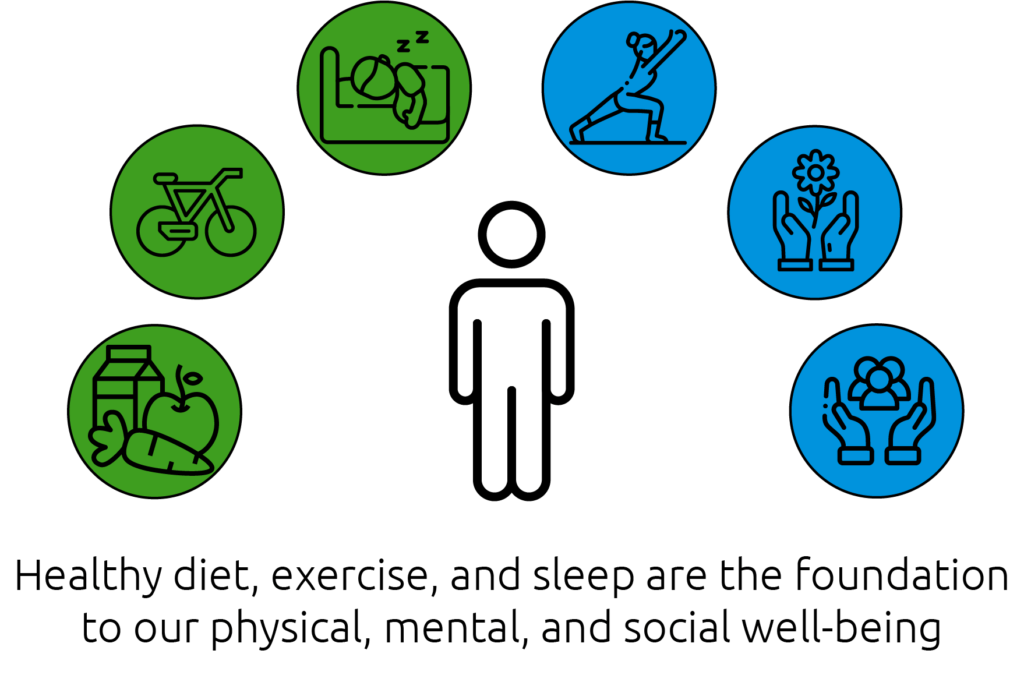
The 15th March – Today Is World Sleep Day!
The 2024 Theme: Sleep Equity for Global Health
World Sleep day is held the Friday before Spring Vernal Equinox of each year.
The theme for this World Sleep Day is Sleep Equity for Global Health. Sleep is essential to health, but measurable differences in sleep health persist across populations across the world, creating additional burdens and reinforcing health inequities.
I love my sleep, and to be honest I NEED sleep – so if I have a few nights of “rubbish” sleep I feel absolutely out of synch with myself! I know Menopause has certainly not helped.
And I do believe that this is what can effect most women, poor sleep normally starts with Peri-menopause and can become habitual that we are “just poor sleepers!”
I was always a heavy sleeper (until Children) but when I am asleep not much disturbs me. But how to maintain a good sleep pattern all week is often the problem. Late nights crop up, cat fights outside, the New and Full Moon phase and not to mention when the clocks change! All these issues disturb our sleep patterns. BUT the experts do state you only need 7-8 hours, that said if there’s chance to go a little more – I take it!
What does healthy sleep look like?
Healthy sleep is sleep which restores and energizes a person, so he or she feels wide awake, dynamic and energetic all day long. Health and disease are opposites, and therefore, when disease (disorder) of sleep does exist, sleep investigation is worded to identify and treat it. Sleep disorders are not rare, and they can cause serious problems, if left untreated.
How many hours of sleep should a person really get?
The optimal sleep duration requirement is largely determined by heredity. However, large surveys show the average sleep duration for an adult is about 7 to 8 hours.
Technically, sleep specialists agree the range of 6.68-10 hours of sleep per night is the optimum amount.
Dr. Clete Kushida, President of World Sleep Society, which hosts World Sleep Day each year. “The short answer is at least 7 hours in length, but a truly restorative sleep depends on duration as well as continuity and depth. Understanding the impact of sleep on physical and mental health is more important than ever before. Share our commitment and amplify our mission to advance sleep health worldwide.”

What are healthy sleep habits?
A restorative sleep depends on duration of sleep, depth of sleep and continuity. A few guidelines for healthier sleep:
- Allow for an adequate amount of sleep every night (sleep duration).
- Establish a regular sleep and wake up schedules. Start by selecting a bedtime when you can fall asleep easily; keep your rising time constant; if you feel you are not getting enough sleep, try to go to bed earlier.
- Ensure your sleep is continuous by eliminating as many sleep disturbances as you can (sleep continuity).
- If you changed your usual sleep schedule, try to return to your regular schedule as soon as possible.
How can I get on a regular sleep schedule?
Maintain a regular sleep schedule by going to bed at the same time every night and waking up at the same time every day, seven days a week. Regularity is important for stabilizing your internal biological clock, allowing you to fall asleep and maintain uninterrupted sleep.
Is it good to nap during the day?
This would depend on whether nocturnal sleep is of good quality and is sufficient in duration. Of course, if you feel sleepy during the day, the first step is to investigate your nocturnal sleep, and ensure everything is done to ensure it is adequate in terms of continuity, architecture and duration. Remember, healthy sleep is sleep which makes you fully alert throughout the day, so you will not need a nap. However, if napping is the only way for you to bear with chronic sleep deprivation arising from inability to get either an adequate amount of sleep due to societal responsibilities, or sleep quality due to various external and internal influences that bear on sleep function, then the pros for napping may outweigh the cons. A recent study which utilized polysomnography to investigate effect of a month-long, daily 1-hour nap regimen in a group of healthy older men and women reported that napping enhanced waking function without negatively affecting nighttime sleep.
If you have a healthy sleep cycle you do not need an alarm clock. Is that true?
One study investigated healthy sleepers’ ability to estimate the amount of time that has elapsed during sleep (time estimation ability; TEA) which would enable them to wake up at a predetermined time without referring to a watch or alarm clock. The time estimation ratio (TER, ratio of the subjective estimated time interval to actual time interval) was accurate for slow wave sleep (believed to be the most restorative stage of sleep), suggesting that it is SWS that supports accurate time estimation, irrespective of healthy sleepers ‘circadian phase’ during experiment, with no other sleep parameters influencing time estimation ability. Slow wave sleep activity changes across the lifespan, with a major increase during childhood and adolescence and decrease thereafter. Therefore, a majority of us may need an alarm clock, nonetheless.
What does good quality sleep look like?
When it comes to measuring how well we sleep, it is common to focus on the number of hours spent asleep, but the quality of our sleep and the impact that our sleep has on how we both feel and function the next day are just as important.
A lack of good quality sleep affects our ability to make decisions and limits our attention span, impacting both our professional and personal lives.
The next time you consider if you had a good night’s sleep, it’s worth asking yourself:
- How restorative did my sleep feel?
- Do I feel refreshed from my sleep?
- Do I feel rested and ready to handle the challenges of life until my next sleep?
While these measures offer good general guidance, it is also important to remember that “good quality sleep” varies from person to person. However, we all need sleep and scientists think that sleep is necessary for the brain to cleanse itself, consolidate memory, and is a physiological necessity equivalent to eating and drinking.
How disturbed nights can disrupt our daily life
As humans, we spend approximately a third of our lives asleep, but a lack of good quality sleep can negatively affect our daily lives and long-term health in many significant ways, such as:
- Limiting our ability to make decisions and halting our attention span
- Affecting our general wellbeing and ability to work productively
- Increasing our risk of developing conditions like heart disease, stroke, and diabetes
- Increase risk of cognitive impairment such as dementia and Alzheimer’s disease
Sleep is one of the three key pillars of health, alongside healthy diet and exercise, and is foundational to our physical, mental, and social well-being. People living with insomnia are awake when everyone else is asleep and exhausted when the rest of the world is energetic and active. The lack of sleep, or poor quality sleep can make the activities of the following day more challenging as it could reduce reaction time, alertness, ability to solve problems or remember things.

If you would like this years WSD Album go here to download, I have listened to this on Spotify and it is now downloaded so that it will be enjoyed in The Treatment Room!
If you have any difficulties with Sleep or Insomnia then do contact me, we can start working on a plan to help you attain a better nights rest.

Disclaimer: The answers are for informational purposes only and not intended as a substitute for medical diagnosis, advice or treatment. Contact your physician or a qualified health provider with questions regarding a medical condition.
References: Liu Y, Wheaton AG, Chapman DP, Cunningham TJ, Lu H, Croft JB. Prevalence of Healthy Sleep Duration among Adults–United States, 2014. MMWR Morb Mortal Wkly Rep. 2016 Feb 19;65(6):137-41
Bonnet MH, Arand DL. We are chronically sleep deprived. Sleep 1995;18:908-11
Centers for Disease Control and Prevention (CDC). Perceived insufficient rest or sleep among adults – United States, 2008. MMWR Morb Mortal Wkly Rep 2009; 58:1175-
Levine B, Roehrs T, Zorick F, Roth T. Daytime sleepiness in young adults. Sleep 1988;11:39-46
